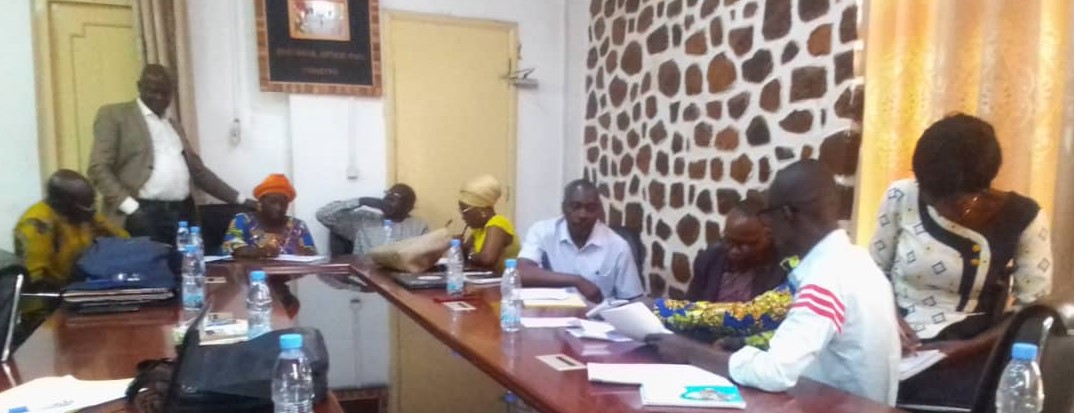During the national program launch of GWL program in 2022, the stakeholders identified bottlenecks impeding the implementation of IWRM in a climate change context. Four of these bottlenecks were shortlisted and each assigned to a working group to define strategies to address these bottlenecks and leverage financing for the strategy implementation. A memo signed by the Ministry in charge of water institutionalised these working groups, providing government support government to the mission of the working groups.
The approach to engage this process developing a response strategy by each working group was divided into 4 phases:
- Identification of root causes,
- Identification of options of solutions
- Identification of funding opportunities
- Development of response strategy project.
Each group (led by two chairs and two reporters) developed working methods to achieve set objectives including (i)planning meetings between the group chairs and the project coordination unit to prepare group meetings and (ii) explanatory group meetings during which study analysis were presented to the group members to improve their understanding of the barrier there are working on to facilitate the identification of root causes. Each group met 3 times over this period to complete the phase on the identification of the root causes.
These meetings mark the end of this first phase in the implementation of the Global Water Leadership in a changing Climate (GWL) program activity to “Facilitate in-country multi-stakeholder change processes on Integrated Water Resources Management”.
At the end of this phase, the following root causes were identified and prioritized by each group:
Group 1 on weak application of existing texts/documents
1. lack of implementing legislation for certain laws
2. Inconsistency of certain texts.
3. overlapping jurisdictions
4. lack of popularization of the texts and documents in force
5. incompetence/qualification of certain officials in charge of applying the texts
6. impunity enjoyed by some officials in charge of the application of laws
7. corruption
8. fragility of the country following multiple crises
Group 2 on the lack of an optimized water resources monitoring system
1. Overlapping of competences between state structures,
2. lack of a coordination structure
3. lack of an information system on water resources
4. lack of financial resources to ensure the maintenance and renewal of water resources monitoring tools
5. insufficient financial resources to adequately cover the costs of monitoring water resources
6. Insufficient human resources to set up and operationalize the monitoring system.
Group 3 on the poor distribution of human resources
1. Violation of the texts in force
2. Nepotism/ laxity
3. clientelism
4. low level of capacity building of some human resources managers
5. incompetence of some human resources managers
Group 4 on the weak adequacy between the allocated national budget and the problems to be solved.
1. lack of a sectoral resource mobilization strategy
2. non-application of the principles of the taxpayer and polluter pays
3. low level of public-private partnership in the water sector
4. lack of political will
5. low mobilization of own funds
6. decline in official development assistance
The next steps for the working group will be to identify response options which will address the barriers and their root causes to determine a feasible funding plan which will support the implementation of the response strategy and improve IWRM and climate adaptation in the Central African Republic.
